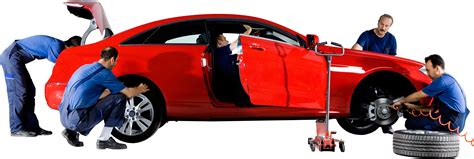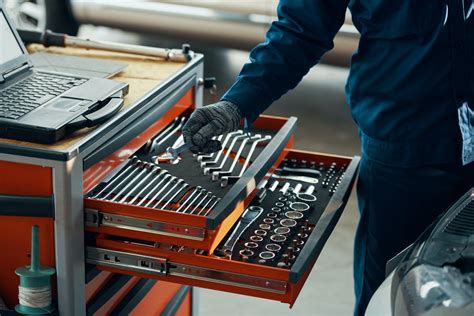
Navigating the used car market can be treacherous, and one mechanic is offering advice on which vehicles to steer clear of, citing specific models plagued by recurring issues and high repair costs. The list includes certain BMW, Land Rover, and Nissan models, among others, pinpointing problems ranging from engine failures to electrical malfunctions that can quickly turn a used car bargain into a financial burden.
The Mechanic’s Blacklist: Cars Prone to Costly Repairs
One seasoned mechanic has released a list of nine used cars that he advises consumers to avoid, based on his extensive experience with frequent and expensive repairs. This isn’t just about personal preference; it’s a data-driven warning derived from years of hands-on experience dealing with the same problematic models. The list aims to help prospective buyers make informed decisions and avoid potential financial pitfalls.
The cars flagged by the mechanic, who remains unnamed in the original report, are identified by their common mechanical and electrical vulnerabilities, which can lead to significant repair bills. The mechanic stresses that while any car can experience problems, these particular models show a disproportionately high incidence of major issues. The mechanic says that these are the cars “I would never buy.”
The Nine Cars to Avoid
The vehicles identified as particularly troublesome, along with the reasons for their inclusion on the “NO-GO” list, are:
-
BMW 5 Series (Certain Models/Years): BMW’s reputation for luxury and performance is often offset by its complex engineering, which can lead to higher maintenance costs. The mechanic highlights electrical issues and oil leaks as persistent problems in some 5 Series models. “The complexity of the electronics makes even simple repairs a headache,” he noted. Certain model years have also been known for engine cooling system failures, which can lead to overheating and costly engine damage. The issues are not isolated incidents but represent common trends across specific model years. Furthermore, the mechanic explains that the cost of BMW parts and specialized labor contributes to the overall expense of ownership. Even routine maintenance, such as oil changes and brake replacements, can be significantly more expensive than for comparable non-luxury vehicles. The high-performance engines in many 5 Series models require synthetic oils and specialized filters, further adding to the running costs. Owners also report issues with the iDrive infotainment system, which can become buggy and unreliable over time. Repairing or replacing the iDrive system can be a significant expense.
-
Land Rover Range Rover (Certain Models/Years): Land Rovers are known for their off-road capabilities and luxurious interiors. However, the mechanic cautions that their reliability record is often questionable. Air suspension problems, electrical gremlins, and oil leaks are frequently reported issues. “The air suspension is a nightmare,” the mechanic stated, referring to the complex system that provides a smooth ride but is prone to failure. The sophisticated electronics that control various vehicle functions, such as the infotainment system, climate control, and driver assistance features, can also be a source of problems. These systems often require specialized diagnostic tools and expertise to repair. The mechanic also notes that the Range Rover’s high weight and powerful engine put a strain on components, leading to accelerated wear and tear. This can result in more frequent replacements of parts such as brakes, tires, and suspension components. The complex network of hoses and pipes that carry coolant and oil throughout the engine compartment can also be prone to leaks, which can be difficult and expensive to repair.
-
Nissan Pathfinder (Certain Models/Years): The Nissan Pathfinder, particularly certain model years with continuously variable transmissions (CVTs), has been cited for transmission failures. The mechanic emphasizes that the CVT issues are a widespread problem. “The CVT is a ticking time bomb,” he warns. The CVT is designed to provide smooth and efficient performance, but it has proven to be unreliable in certain Pathfinder models. The transmission can fail prematurely, requiring a costly replacement. Owners have reported issues such as slipping, shuddering, and complete transmission failure. The problem is often exacerbated by towing or heavy loads, which put additional strain on the transmission. Nissan has issued recalls and extended warranties for CVT issues in some models, but the problem persists in certain model years. The mechanic advises potential buyers to carefully research the specific model year and check for any reported transmission problems before making a purchase. Other issues reported include problems with the timing chain and oil consumption.
-
Audi A4 (Certain Models/Years): Similar to BMW, Audi vehicles are known for their advanced technology and performance but also for their complexity and potential for expensive repairs. The mechanic points to oil consumption issues and electrical problems as common concerns. “Oil consumption can be a real headache with these engines,” the mechanic notes. The 2.0-liter turbocharged engine, in particular, has been known to consume excessive amounts of oil, which can lead to engine damage if not properly monitored and addressed. The mechanic also highlights potential problems with the direct injection system, which can become clogged with carbon deposits over time. This can reduce engine performance and fuel economy. The electrical systems in Audi vehicles are also complex and can be prone to problems, such as malfunctioning sensors, faulty wiring, and issues with the infotainment system. The cost of Audi parts and specialized labor can also make repairs more expensive than for other vehicles.
-
Jeep Cherokee (Certain Models/Years): The Jeep Cherokee, especially models equipped with the nine-speed automatic transmission, has been plagued by shifting problems and transmission failures. The mechanic strongly advises against buying these models. “The nine-speed transmission is a disaster,” the mechanic stated. The transmission has been known to exhibit rough shifting, delayed engagement, and even complete failure. The problems are often attributed to software glitches and mechanical issues within the transmission itself. Owners have reported experiencing these issues at relatively low mileage, which is a significant concern. The mechanic also notes that the Jeep Cherokee has been known for electrical issues and problems with the Uconnect infotainment system. The Uconnect system can be buggy and unreliable, leading to frustration for owners. The complex electrical systems in the Cherokee can also be prone to problems, such as malfunctioning sensors and faulty wiring.
-
Mercedes-Benz C-Class (Certain Models/Years): While Mercedes-Benz is synonymous with luxury and engineering excellence, some models of the C-Class have been noted for their potential maintenance costs. The mechanic highlights issues like electrical problems and the potential for rust, especially in older models. He also mentioned the complexity of the electronic systems as a major source of repair expenses. “The electronics can be incredibly complex and expensive to fix,” he explained. The C-Class often boasts a wide array of sensors, modules, and control units that can fail over time. These failures can lead to dashboard warning lights, reduced performance, or even complete system shutdowns. Rust is another concern, particularly in older models that have been exposed to harsh weather conditions. Rust can affect the body panels, undercarriage, and even critical components like brake lines and suspension parts. Addressing rust can be a time-consuming and costly process.
-
Ford Focus (Certain Models/Years): The Ford Focus, particularly models equipped with the dual-clutch automatic transmission (DCT), has faced significant criticism and numerous complaints. The mechanic emphasizes that these models should be avoided due to the transmission’s notorious reliability issues. “The dual-clutch transmission is a nightmare,” he noted, echoing the sentiments of many owners and automotive experts. The DCT is known for its jerky shifting, hesitation, and potential for complete failure. Owners have reported experiencing these issues at relatively low mileage, often requiring costly repairs or replacements. Ford has faced numerous lawsuits and recalls related to the DCT issues in the Focus. The problems are often attributed to design flaws and software glitches within the transmission. The mechanic advises potential buyers to avoid Focus models equipped with the DCT and opt for models with a manual transmission or a traditional automatic transmission.
-
Chevrolet Cruze (Certain Models/Years): The Chevrolet Cruze, especially certain turbocharged models, has been noted for its potential engine problems. The mechanic mentions issues such as coolant leaks and turbocharger failures as reasons to be wary. “Coolant leaks and turbo problems are common,” the mechanic warns. The 1.4-liter turbocharged engine in the Cruze has been known to develop coolant leaks, which can lead to overheating and engine damage if not properly addressed. The turbocharger itself can also be prone to failure, requiring a costly replacement. Other issues reported include problems with the PCV (positive crankcase ventilation) system, which can lead to oil leaks and engine performance problems. The mechanic advises potential buyers to carefully inspect the engine for any signs of leaks or damage before purchasing a used Cruze. It’s also a good idea to have the engine inspected by a qualified mechanic to assess its overall condition.
-
Fiat 500 (Certain Models/Years): The Fiat 500, while stylish and fuel-efficient, has been noted for its potential reliability issues. The mechanic points to electrical problems and overall build quality concerns as reasons to approach this car with caution. “Electrical gremlins and build quality are concerns,” the mechanic notes. The Fiat 500 has been known to experience electrical problems, such as malfunctioning sensors, faulty wiring, and issues with the infotainment system. These problems can be difficult to diagnose and repair. The overall build quality of the Fiat 500 has also been a concern, with some owners reporting issues such as interior trim pieces falling off and premature wear and tear. The mechanic advises potential buyers to carefully inspect the car for any signs of electrical problems or build quality issues before making a purchase.
Factors Contributing to Unreliability
Several factors contribute to the unreliability of these vehicles. Complex engineering, advanced technology, and the use of high-performance components can all increase the risk of mechanical or electrical failures. Additionally, some manufacturers may prioritize performance and styling over long-term reliability. The mechanic emphasizes that regular maintenance and proper care can help extend the life of any vehicle, but some models are inherently more prone to problems than others.
The Importance of Research and Inspection
Before purchasing any used car, it’s crucial to conduct thorough research and have the vehicle inspected by a qualified mechanic. Researching the specific model and year can reveal common problems and potential issues. A pre-purchase inspection can identify any existing mechanical or electrical problems that may not be readily apparent.
Beyond the List: General Advice for Used Car Buyers
While the mechanic’s list provides valuable insights, it’s essential to remember that any used car can have problems. Here are some general tips for buying a used car:
- Check the vehicle’s history: Obtain a vehicle history report (e.g., Carfax or AutoCheck) to check for accidents, title issues, and odometer fraud.
- Inspect the vehicle thoroughly: Look for signs of damage, wear and tear, and neglect. Pay attention to the engine, transmission, brakes, and suspension.
- Test drive the vehicle: Drive the car in various conditions to check for any unusual noises, vibrations, or shifting problems.
- Have the vehicle inspected by a mechanic: A pre-purchase inspection can identify potential problems that you may not be able to see.
- Negotiate the price: Be prepared to negotiate the price based on the vehicle’s condition and any identified problems.
- Consider a warranty: If possible, purchase a used car with a warranty to protect yourself against unexpected repair costs.
Expert Opinions and Industry Data
The mechanic’s advice aligns with data from various consumer organizations and automotive publications that track vehicle reliability. Consumer Reports, for example, publishes annual reliability ratings for various car models, based on surveys of its subscribers. These ratings can provide valuable insights into the long-term reliability of different vehicles. J.D. Power also conducts studies on vehicle dependability, which measure the number of problems experienced by owners of three-year-old vehicles. These studies can help identify models that are more prone to problems over time.
Long-Term Cost of Ownership
When evaluating a used car, it’s important to consider the long-term cost of ownership, which includes not only the purchase price but also the cost of maintenance, repairs, insurance, and fuel. Some vehicles may have a lower purchase price but higher maintenance costs, while others may have a higher purchase price but lower maintenance costs. The mechanic’s list highlights vehicles that are likely to have higher-than-average maintenance and repair costs, which can significantly impact the overall cost of ownership.
Alternative Options
If you’re considering one of the vehicles on the mechanic’s list, it’s worth exploring alternative options. There are many reliable and affordable used cars available that can provide years of trouble-free service. Consider researching models that have a proven track record of reliability and low maintenance costs. Some popular options include Toyota Camry, Honda Accord, Mazda3 and Subaru Impreza.
Conclusion
The mechanic’s “NO-GO” list serves as a valuable resource for used car buyers, providing insights into vehicles that are prone to costly repairs. By heeding this advice and conducting thorough research and inspections, buyers can significantly reduce their risk of purchasing a lemon. Ultimately, the goal is to make an informed decision and choose a used car that will provide reliable transportation for years to come, without breaking the bank on constant repairs.
Frequently Asked Questions (FAQ)
1. Is this mechanic’s list definitive, or are there exceptions?
While the mechanic’s list is based on extensive experience, it’s not a guarantee that every vehicle on the list will be problematic, or that vehicles not on the list will be trouble-free. Individual vehicle condition, maintenance history, and driving habits can all influence reliability. The list should be considered a guideline for areas to be more cautious about and to research in more detail. “This is based on my experience,” the mechanic notes, implying that other mechanics might have slightly different experiences.
2. What specific model years of these cars are most problematic?
The mechanic’s advice is generally targeted at specific model years known for particular issues, but the original source doesn’t specify the exact year ranges for each model. It’s crucial to research specific model years for each vehicle to identify known problems and recalls. Online forums and owner reviews can provide more detailed information. For example, certain Nissan Pathfinder model years between 2013 and 2017 are particularly infamous for CVT failures.
3. If I already own one of these cars, what should I do?
Owning a car on this list doesn’t necessarily mean impending doom. Regular maintenance, prompt attention to warning signs, and careful driving habits can help extend the life of your vehicle. Be proactive about addressing any potential issues before they escalate. Also, consider budgeting for potential repairs, as these models are statistically more likely to require them. Get regular inspections from a trusted mechanic who is familiar with the specific issues these models face.
4. Does this list only apply to used cars, or are new models affected as well?
While the list is primarily focused on used cars, the underlying issues can sometimes be present in newer models as well, especially if the design flaws or component weaknesses haven’t been fully addressed by the manufacturer. Researching the reliability ratings and owner reviews for the latest models is still crucial. Keep in mind that even new cars can experience problems, although they are typically covered by a warranty.
5. How much money could I potentially save by avoiding these cars?
The amount of money you could save depends on the specific model, the severity of the problems, and the cost of repairs in your area. However, avoiding a car with a history of frequent and expensive repairs could potentially save you thousands of dollars over the lifespan of the vehicle. The cost of replacing a transmission or engine can easily exceed $5,000, and ongoing maintenance costs can also add up significantly. The mechanic’s intention is to prevent these unexpected and burdensome expenses.
In-Depth Analysis and Expanded Context
The mechanic’s list of cars to avoid provides a valuable starting point for prospective used car buyers, but it’s essential to delve deeper into the reasons behind the unreliability of these vehicles and to consider the broader context of the used car market.
Understanding the Root Causes of Unreliability
The unreliability of certain car models can be attributed to a combination of factors, including:
- Design flaws: Some vehicles are simply poorly designed from the start, with inherent flaws in their engineering or component selection. These flaws can lead to premature failures and costly repairs.
- Manufacturing defects: Even well-designed vehicles can suffer from manufacturing defects, which can affect the quality and durability of individual components.
- Complex technology: Modern cars are increasingly complex, with sophisticated electronic systems and advanced features that can be prone to failure. The more technology a car has, the more potential points of failure there are.
- Lack of maintenance: Neglecting regular maintenance, such as oil changes and fluid flushes, can accelerate wear and tear and lead to premature failures.
- Harsh driving conditions: Driving in extreme weather conditions, towing heavy loads, or engaging in aggressive driving habits can put additional strain on vehicle components and reduce their lifespan.
- Cost-cutting measures: In some cases, manufacturers may cut corners on component quality or manufacturing processes in order to reduce costs, which can ultimately lead to lower reliability.
The Role of Technology in Vehicle Reliability
The increasing complexity of modern vehicles, driven by the integration of advanced technology, has had a significant impact on vehicle reliability. While these technologies offer numerous benefits, such as improved safety, fuel efficiency, and convenience, they also introduce new potential points of failure.
The electronic control units (ECUs) that manage various vehicle functions, such as the engine, transmission, and brakes, can be prone to software glitches and hardware failures. Sensors that monitor various parameters, such as engine temperature and tire pressure, can also malfunction, leading to inaccurate readings and system errors.
The infotainment systems that provide navigation, entertainment, and connectivity features can also be a source of problems. These systems often rely on complex software and hardware, which can be buggy and unreliable.
The Importance of Vehicle History Reports
A vehicle history report (VHR) can provide valuable information about a used car’s past, including accidents, title issues, odometer fraud, and maintenance history. A VHR can help you identify potential problems and avoid buying a car with hidden issues.
VHRs are compiled from various sources, including insurance companies, law enforcement agencies, and repair shops. They typically include information such as:
- Accident history: Whether the vehicle has been involved in any accidents, and the severity of the damage.
- Title issues: Whether the vehicle has been declared a total loss, salvaged, or rebuilt.
- Odometer readings: A history of odometer readings to detect potential odometer fraud.
- Maintenance history: A record of maintenance services performed on the vehicle.
- Recall information: Any open recalls for the vehicle.
The Value of a Pre-Purchase Inspection
A pre-purchase inspection (PPI) is a comprehensive inspection of a used car performed by a qualified mechanic. A PPI can identify existing mechanical or electrical problems that may not be readily apparent.
A PPI typically includes a thorough inspection of the engine, transmission, brakes, suspension, electrical system, and other key components. The mechanic will also check for signs of damage, wear and tear, and neglect.
A PPI can help you make an informed decision about whether to purchase a used car and can also provide leverage for negotiating the price.
Negotiating the Price of a Used Car
Negotiating the price of a used car is an important part of the buying process. Be prepared to negotiate based on the vehicle’s condition, mileage, and any identified problems.
Here are some tips for negotiating the price of a used car:
- Do your research: Research the market value of the car you’re interested in to get an idea of what a fair price would be.
- Be prepared to walk away: Don’t be afraid to walk away from a deal if you’re not comfortable with the price.
- Point out any flaws: Highlight any flaws or problems you find with the car to justify a lower price.
- Negotiate the out-the-door price: Make sure you’re negotiating the final price, including taxes, fees, and other charges.
- Get everything in writing: Make sure all the terms of the deal are written down in a contract before you sign anything.
The Importance of a Warranty
A warranty can provide protection against unexpected repair costs. Consider purchasing a used car with a warranty, if possible.
There are several types of warranties available for used cars, including:
- Manufacturer’s warranty: Some used cars may still be covered by the original manufacturer’s warranty.
- Extended warranty: An extended warranty is a separate warranty that you can purchase from a dealer or third-party provider.
- Limited warranty: A limited warranty covers only certain parts or systems of the car.
The Future of Vehicle Reliability
The future of vehicle reliability is likely to be shaped by several trends, including:
- Electric vehicles: Electric vehicles (EVs) have fewer moving parts than traditional gasoline-powered vehicles, which could potentially lead to greater reliability.
- Autonomous driving: Autonomous driving technology could potentially reduce accidents and improve vehicle longevity.
- Over-the-air updates: Over-the-air (OTA) updates can allow manufacturers to fix software glitches and improve vehicle performance remotely.
- Data analytics: Data analytics can be used to identify potential problems and predict failures before they occur.
Conclusion
The mechanic’s “NO-GO” list is a valuable tool for used car buyers, but it’s essential to consider the broader context of the used car market and to conduct thorough research and inspections. By understanding the root causes of unreliability, utilizing resources like vehicle history reports and pre-purchase inspections, and negotiating effectively, buyers can increase their chances of finding a reliable and affordable used car. The future of vehicle reliability is likely to be shaped by emerging technologies and data-driven insights, which could ultimately lead to more dependable and longer-lasting vehicles. However, until then, the advice of experienced mechanics and the diligence of informed buyers remain crucial in navigating the complexities of the used car market.



![[Restaurant Name] Returns! Iconic Chain Revives After 30-Year Absence](https://generasitekno.com/wp-content/uploads/2025/06/unnamed-file-924-150x150.jpg)





